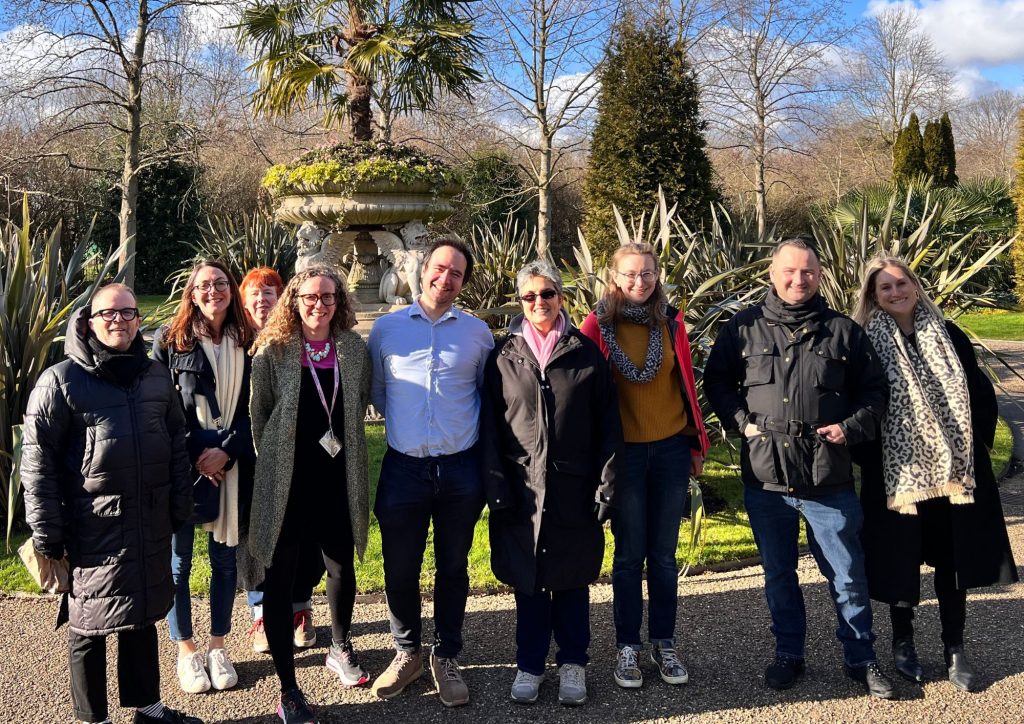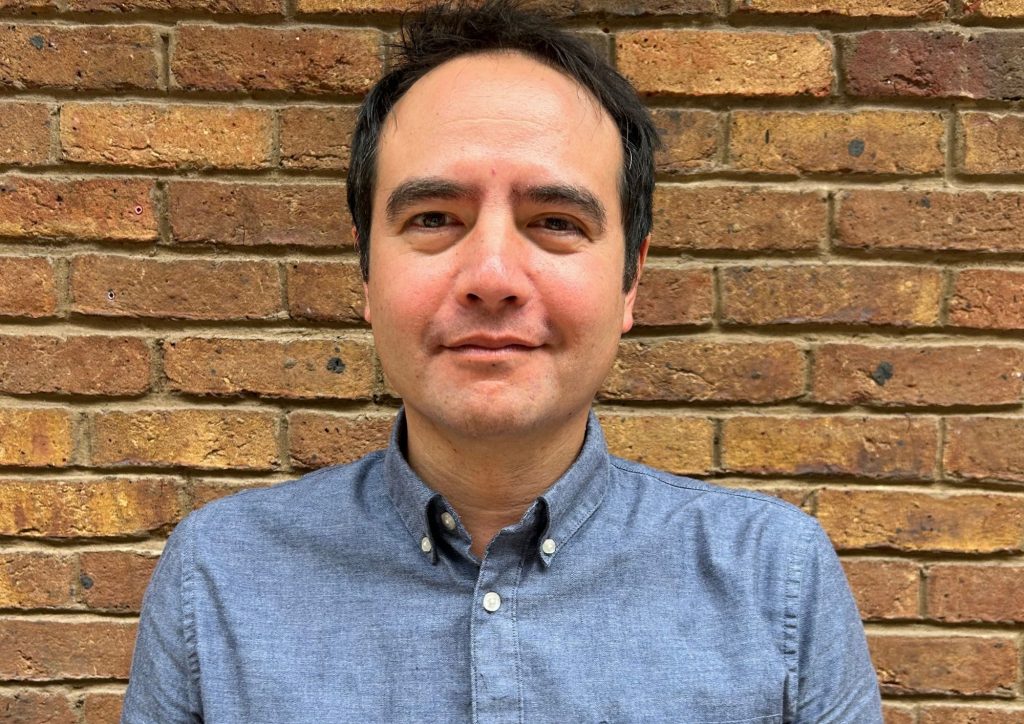Loneliness in Camden: New project aims to ‘reach the furthest to hear the quietest'
Meet the researchers in Kentish Town
Monday, 12th May 2025 — By Dan Carrier

You can get involved in Camden Connects this weekend
A NEW project that aims to ‘…reach the furthest to hear the quietest’ launches next week – and leading researchers from University College London want to hear from you.
Camden Connects is a study run by University College London that aims to draw up a comprehensive picture of social isolation and loneliness in Camden – and find new ways the Town Hall can reach those in need.
A professor of geriatric medicine at UCL, Daniel Davis is leading the research – with the New Journal as its media partner – to help shape the future of care in our neighbourhoods.
Professor Davis’s research team are looking for evidence about people’s circumstances, especially people who experience isolation and loneliness, in Kentish Town.
Next Saturday, Prof Davis’s team are hosting an open morning in Kentish Town’s Old Farmhouse pub – and they want to meet as many people from the neighbourhood as possible. The aim is to listen to as many voices as they can as a starting point for researchers to look at issues around loneliness, isolation, and people who do not readily access existing services – or fall between the gaps in the welfare and healthcare safety net.
Camden Connects launches on Saturday May 17 at 9.30am till 12pm at The Old Farmhouse, Kentish Town Road, NW5
Visitors are invited to drop in and meet the researchers.
Prof Davis said: “There are people in Camden today who do not know another human being. It is about making a welcome space to talk to people who may feel isolated, or for people who are advocates for others.
“We are starting by focussing on an area that covers Kentish Town down to Camden Square and we want to speak to local groups, individuals, neighbours – anyone with experiences of loneliness and isolation. We have a fair idea of the landscape via the social workers we have spoken to, and the fact we work with primary carers, primary care services and the NHS – but we want to get a really authentic idea of the situations people face.”

Researchers from UCL
With councils responsible for providing care services, Prof Davis wants to give Camden a research package that can help target resources.
Prof Davis said: “Social isolation and loneliness are different but related concepts. Both have impacts on social care and health needs.
“We know loneliness and isolation is and remains a huge problem. We know preventative medicine works – £1 spent now saves £10 being spent later on. We know local authorities recognise this – so what is the answer? Are there ways we can look at these issues that draws on new research?”
The UCL researchers have teamed up with the University of Lincoln, who are running a similar study focusing on rural and coastal communities.
And the pilot scheme could provide a template for care services across the UK, Prof Davis added.
“If we can crack this with Camden, the research can be rolled out,” he said.
Looking after those most in need can mean wider improvements for everyone.
Prof Davis said: “One issue is existing services are fire fighting. That has impacts. Everyone has to use the same A and E department, for example. A Local Authority can only do so much and so if it is firefighting, it means it cannot provide the level of service it would like to everyone.
“You can draw a diagram of people’s well-being using a bell curve. The wider the curve, the bigger inequality. The interesting thing is the worst the outcomes for the bottom end shifts outcomes for the top end too. It affects everyone – it is in everyone’s interest to ask why?”

Professor Dan Davis
The project aims to hand Camden Council world class research into the needs of people in the borough.
Prof Davis said: “At UCL, we feel strongly part of our community and our borough. We are a socially engaged institute and we want to do something for the communities we live and work in.
“Social care research has been identified as a priority by the National Institute of Health Care Research – but local authorities do not have the in-house skills and resources.
“We want to seek the funding to undertake a comprehensive programme, not just to map a course out for better solutions, but to look at the evidence. Some of it will no doubt suggest interventions that are outside the usual models of provision – it won’t just be a case of saying we need more, better trained and better paid carers – though we do need that – it will be community lead and draw on multiple approaches. It won’t be a case of saying – OK, this person just needs to be helped to find like minded people, join a befriending service, for example.
“The reality is there’s a lot of vibrancy in Camden but are the services reaching the right people? What can we do to improve the services already there, and what can we add to them?”
A council-led report in 2022 outlined how isolation and loneliness has impacts on long term health: both resulted in unhealthy lifestyles including a lack of activity, smoking, poor sleep and poor diet. It also causes psychological problems such as stress, depression and anxiety – and can lead to people failing to seek help or follow medical advice when given.
The report sets out stark facts that back up harder to quantify factors that lead to isolation: statistics revealed 18 percent of people in the borough live on their own – 5 percent more than the national average, while 65 percent of adults are single, separated, divorced or widowed.
Nearly 40 percent of people who receive care support said they spend too much time on their own, while 15 percent of adults referred to social services included concerns over isolation.
Prof Davis said: “We want to provide an academic practitioner approach, bring to bear a research lens to these problems. There is a lot of activity, and a lot of expenditure, but do people want the services they are getting?”
And the research will give Camden residents access to world-leading academics who work on their doorsteps.
He said: “We want to use our expertise to help Camden tackle these problems. Camden is home to some of the world’s most elite research universities and we can use that to research the issue authentically.
“I want to ask our community what the impact of social isolation and loneliness in Camden is? What are the social care needs? I want to be able to count the number of people systematically who are currently not getting the care they need.”
One key element is finding out the hidden stories of people behind the front doors: neighbours living alone who may decline offers of help, who do not have a support network, and who, tragically, might pass away with no next of kin to arrange a funeral.
Prof Davis said: “It might be people who have aged without children, or have lost a partner, or moved away from their family and have lost touch.
“We can take population data from health records, from the census – but official data can underestimate the issues around loneliness and the scale.
“We know some people rely heavily on neighbours. We know people may experience a disability, can be isolated from relatives, suffer from food poverty, have hoarding instincts. We want to count the people who have not been contacted before. What services do people have – or not have?
“What formal and informal services are used?”
Bringing together evidence from individuals and listening to care professionals will help build up a picture of those who, as Prof Davis says, “…are the furthest away and have the quietest voices.”
He added: “We want to consider how we can be innovative. Sometimes the services out there are not suitable – not everyone wants to go to a befriending service.
“What voices can contribute to find local solutions? No one should be discounted, no one left behind, no one left out.”
Camden Connects launches on Saturday May 17th at 9.30am till 12pm at The Old Farmhouse, Kentish Town Road, NW5. Visitors are invited to drop in and meet the researchers.